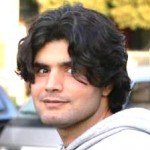
This Ashura, I have a confession
I had no clue if I was Sunni, Shia, Christian, Hindu or Jew. It was the adults who said, “You are this, be like...
My beloved Hussain,
I write to you today on the anniversary of the day you died. Take it as what you will, I think of it more as a confession.
Ever since I was very little, they told me to love you. To know you and understand you. To be like you. Probably one of the first things anyone ever told me was that your death on the 10th day of Muharram - Ashura as they said - was a tragedy that should only elicit heartache and sympathy. But before that, I knew nothing.
As I child, I didn’t know who I was besides the fact that I was, well, alive. Then, I learned I was a human being because other human beings constantly called me that – “human”.
It wasn’t until I was a few years old, and learned to speak and comprehend that the adults in my life spoke about what I was - or rather I would and should be when I became an adult.
I had no clue if I was a Sunni, a Shia, a Christian, a Hindu or a Jew. It was the adults who said,
“You are this. You have to be like this,”
I wish they had shut up at that point, but they didn’t. They then said,
“Since you are this. You must hate that. The people over there, the way they hold their hands when they pray… the god they pray to… The colour of their skin… the language they speak… those people deserve your contempt and hatred.”
I was too young to ask why. I simply nodded.
It never dawned on me that I should question them. I simply accepted as fact that some people deserved my love while others deserved my hatred because they were not people - or at least not people like me. But the adults were wrong…
I didn’t realise that until I saw what happens to us when we’re dead. Yes, dead people taught me the adults were liars. It’s when I saw death that I saw that in death, we are just people.
No one is Hindu, Christian, Muslim, Sunni, Shia, Protestant, Catholic, Mahayana or Zen or atheist or white or black or brown or woman or man or whatever. The dead were simply people like me… who had to face life, with all its tears and all its laughter; with all its challenges and rewards. They, too, had to grapple with what I had to grapple.
You know what’s funny? The same people who told me to hate taught me to love, too and no one deserved more of my love, they said, than you. However, faced with humanity in the state that I have faced it - in death - I really learned how much I loved you.
I didn’t love you because they told me to love you. I loved you because when I saw dead people, I figured out how much your death meant to me.
I wish we lived in a world where adults taught children that they are simply human. That all life is worth preserving - not just the lives that we prefer - until it’s too late for all of us. I wish children didn’t have to see death to realise that life is simply life. That religious, ethnic and linguistic tags attached to life do not take away from its importance. But that’s not so.
Your death is the one death that taught me the most, though. You are one of the original protesters. Your quest to tell truth to power, to stand for the down-trodden, to speak for the silenced is the one that inspired me the most. Even before I learned about Gandhi’s salt march, Martin Luther King’s ‘I Have a Dream’ speech and Nelson Mandela’s 27 years on Robin Island.
You’re the first to teach me that we as human beings endowed with life have a choice against oppression. That when faced with tyranny we can say,
“No”
My bond with you starts and finishes there. It doesn’t matter that I’m told your blood runs through my veins. Or that I follow the same religion. Or that we belong to the same ethnic group.
No.
My love for you transcends all.
To me, you are neither blood, nor kin, nor religious fellow.
You are an idea… the idea that I have a choice. That we all have a choice. That dying for love is better than living for hatred and indifference.
That’s why you are my hero and my guide. The purpose of my existence is only to emulate your struggle. On this Ashura, I will confess, I have never mourned you. No, never. I reserve mourning for people who have failed.
This post is dedicated to @MurtazzaHasan




COMMENTS (38)
Comments are moderated and generally will be posted if they are on-topic and not abusive.
For more information, please see our Comments FAQ